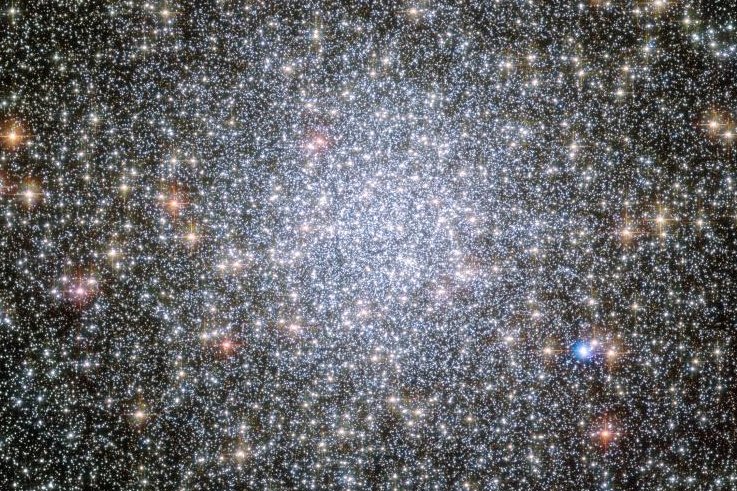Researchers say globular star clusters, like 47 Tucanae pictured above, might host interstellar civilizations. Photo by NASA/ESA/Hubble Heritage Team
BOSTON, Jan. 6 (UPI) -- Astronomers from the Harvard-Smithsonian Center for Astrophysics say globular clusters -- large, dense spheres of stars -- are the galactic regions most likely to harbor interstellar civilizations.
"A globular cluster might be the first place in which intelligent life is identified in our galaxy," lead researcher Rosanne DiStefano said in a press release.
The statement appears obvious, simply a matter of numbers. But most astronomer have so far ignored globular clusters as possible hosts of alien life.
Astronomers estimate upwards of 70 percent of all stars in the universe exist in globular clusters. The more stars there are, the more planets there should be -- the more planets, the more opportunities for intelligent life to develop.
But among the 150 globular clusters in the Milky Way -- most orbiting along the outskirts of the galaxy -- only one exoplanet has been identified. The thinking goes that globular clusters don't contain enough of the heavy elements necessary for planet formation.
DiStefano and her research partners say that thinking is wrong.
"It's premature to say there are no planets in globular clusters," said colleague Alak Ray, an astronomer at the Tata Institute of Fundamental Research in Mumbai, India.
While it may be true that Jupiter-like gas giants prefer stars rich in heavy elements, rocky Earth-like planets don't show the same tendency. Planets in globular clusters may simply be hard to spot, as they're so far away.
If there are plenty of rocky exoplanets in globular clusters, scientists say they'd be places ripe for the evolution of intelligent life.
Stars in globular clusters are older and less volatile -- many of them are dead or dying. This means the orbits of rocky planets would have to hug much more snugly to their host star, but it also means any alien worlds would be mostly free of stellar interactions and associated volatility.
"Once planets form, they can survive for long periods of time, even longer than the current age of the universe," said DiStefano.
If civilizations have developed inside a globular cluster, there would be a greater chance of interstellar communication. Stars there would be much closer together. The average distance between two stars in a cluster is 20 times closer than Earth is to its nearest stellar neighbor.
"Interstellar travel would take less time too," said DiStefano. "The Voyager probes are 100 billion miles from Earth, or one-tenth as far as it would take to reach the closest star if we lived in a globular cluster. That means sending an interstellar probe is something a civilization at our technological level could do in a globular cluster."
While spotting an exoplanet so far away is exceptionally difficult, researchers could potentially use radio observatories to pick up radio or laser broadcasts emitted by distant civilizations.















